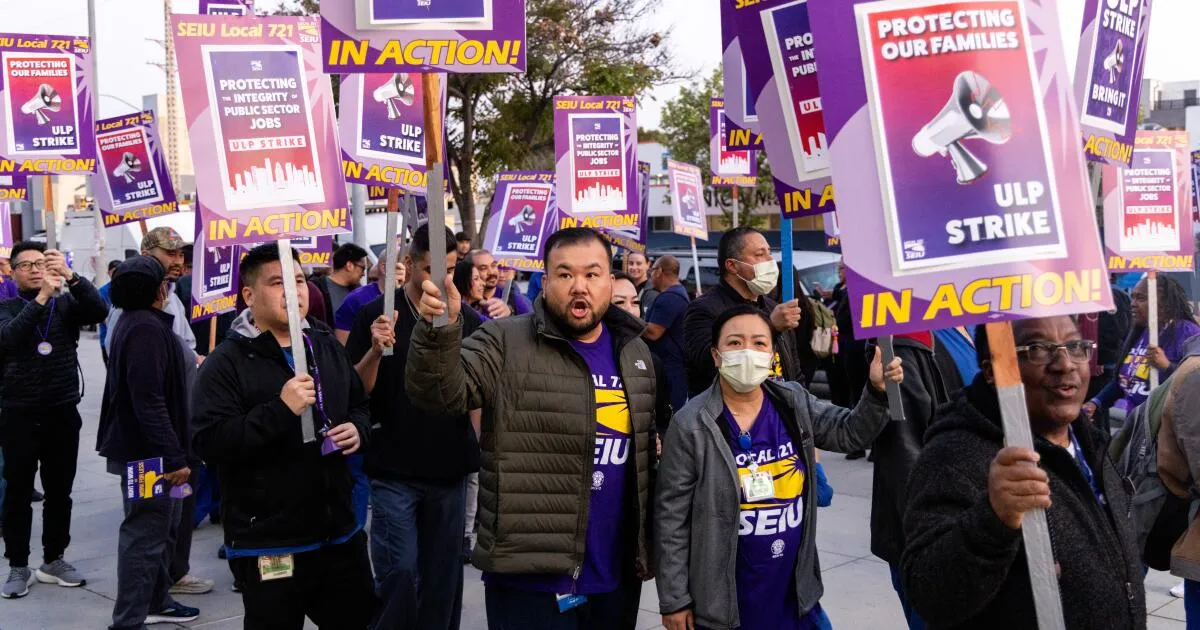
On Monday night, approximately 55,000 L.A. County workers initiated a significant strike, resulting in disruptions to essential public services ranging from healthcare and social work to libraries and parks. The strike, led by SEIU Local 721, commenced at 7 p.m. and is scheduled to last for two days, concluding at 7 p.m. on Wednesday. Union leaders attribute the strike to the county's failure to engage in fair negotiations for a new contract.
David Green, the head of SEIU Local 721, voiced strong sentiments regarding the situation, stating, “Clearly, they thought they were above the law. They thought we would never strike. They thought wrong.” This marks a historic moment as it is the first time all members of the union have collectively walked off the job, representing a united front in their demands.
The strike is poised to affect nearly all county departments. Notably, libraries and certain healthcare clinics will remain closed throughout the strike duration, although hospitals will continue to operate. Additionally, the cleanup of wildfire debris along beaches may be halted, and public service counters at the Hall of Administration could be shut down.
Union leaders have highlighted a series of grievances that led to this strike, including a reported 44 labor law violations allegedly committed by the county. These violations encompass claims of retaliation and the outsourcing of work that should rightfully be performed by union members. The current contract for the union expired at the end of March, exacerbating tensions between the workers and county management.
Compounding the frustration is the union's outrage over what they describe as an insultingly low pay offer. Initially, the county cited financial constraints stemming from wildfire expenses, a substantial sex abuse settlement, and the loss of federal grants as reasons for its inability to provide raises this year. L.A. County Chief Executive Fesia Davenport acknowledged that the union's initial salary proposals could have cost the county billions, leading to a cautious approach in negotiations.
Davenport remarked, “We don’t want to negotiate ourselves into a structural deficit. We want to hold the line.” She emphasized that without careful negotiation, the county may be forced to consider job cuts in the future, similar to the proposed 1,650 layoffs by Los Angeles Mayor Karen Bass to address a nearly $1-billion deficit driven in part by prior employee raises.
Amid these negotiations, Davenport also highlighted the importance of maintaining the county’s credit rating. The county has managed to retain its AAA credit rating from S&P Global Ratings, despite the impending $4-billion sex abuse settlement. This stability is attributed to the county's reserves, manageable debt burden, and a strong tax base. In contrast, S&P has recently downgraded the city of L.A.’s rating due to its “weakening financial position and an emerging structural imbalance.”
As the strike continues, the situation remains fluid, with both the union and county officials seeking resolutions that align with their respective financial and operational goals.